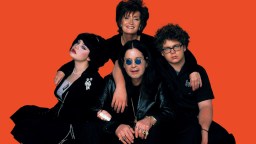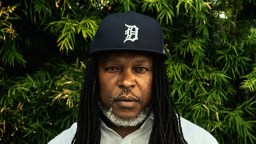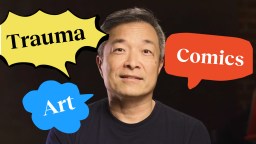From overcoming childhood trauma to achieving a historic swim at 64 years old, record-breaking swimmer Diana Nyad’s journey shows the transformative power of self-connection and perseverance
For record-breaking swimmer Diana Nyad, the water was always a place of safety, strength, and expansion. It was where she connected with herself, and where she pushed beyond her perceived limits.
“I wanted to be first. I wanted to work the hardest,” the 75-year-old athlete recalls about her early years as a competitive swimmer. “My coach thought I was going to be one of the best in the world. He was my champion and I was his champion.”
The water was also where she allowed herself to fall apart after her coach began sexually abusing her at 14 years old and her mom ignored her report. Steeped in shame and self-blame, Nyad detached from herself as a coping mechanism.
But every day, she returned to the water to train and compete. She found solitude, which connected her to a deeper version of herself that was full of determination, persistence, and dreams.
“When I got in the pool or the ocean, all my fears went away,” she says. “Nobody could touch me. I expressed my anger out there. I would stop in the middle of a set of 400s and go underwater and scream at the top of my lungs.”
On trial day for the Olympic 100m backstroke qualifiers, Nyad felt weighed down by the sexual abuse she had suffered for years. Her friend Suzanne sensed this, interrupted her thoughts, and encouraged her to give the race everything she had.
“When you finish this race,” said Suzanne. “I want you to close your eyes and say: ‘I couldn’t have done it a fingernail faster.’ No matter what happens, you’ll have no regrets.”
Her advice resonated with Nyad and shifted her perspective on the importance of winning.
She didn’t qualify in that race, but she walked away knowing she gave her best. That loss didn’t define her. It didn’t become her identity, it was simply one event she didn’t win. She kept Suzanne’s words as a guiding mantra as she stepped into her future.
Nyad went on to have a brilliant career as a sports journalist and author. She also found closure with her mother who, through the haze of Alzheimer’s, asked for forgiveness, which Nyad granted. After her mom died, Nyad took stock of her life at 59 – what was she going to do with the rest of her life?
Her dreams, passions, and purpose still burned within her – she wanted to swim from Cuba to the U.S. in one shot.
Training was grueling on her mind and body after 30 years away from swimming. But being in the water returned her to a familiar solitude that reminded her of its healing powers.
“I wasn’t any longer swimming with anger. I was swimming with awe of this blue planet of ours. I felt a connection and the lift of the wave, rather than the crash and the barrier of the wave.”
She attempted and failed the crossing four times. But at 64 years old, she finally succeeded. When she emerged from the ocean after swimming 60 nonstop hours, the only words she could muster to the cheering crowd were the ones that described her life up to that moment. “We – meaning all of us – should never, ever give up.”
Nyad wrote a memoir, Find a Way, in 2015 that was turned into the award-winning film Nyad in 2023. Her inspirational story reminds us that failures, just like wins, are essential bricks in the road to deeper self-connection.
“That’s the way I want to go through every day, with just an unwavering, awake, alert commitment to feelings and to thoughts,” Nyad says. “I want that last day to come, that last breath, and for me to say, ‘I did it all so I couldn’t do it a fingernail better.’”
We interviewed Diana Nyad for Perception Box Stories Untangled, a Big Think interview series created in partnership with Unlikely Collaborators. As a creative non-profit organization, they’re on a mission to help people challenge their perceptions and expand their thinking. Often that growth can start with just a single unlikely question that makes you rethink your convictions and adjust your vantage point. Watch Nyad’s full interview above, and visit Perception Box to see more in this series.
DIANA NYAD: I was so known around the world really for finally stumbling upon that beach in Key West after trying that Cuba swim expedition dream for 35 years and failing four times.
I would imagine the oration that I would give on the beach if I finally did make it to the other shore. But the truth is, it didn't happen that way. I was stunned by the emotion of it all, by the physical duress of it all. And the first words I said to those screaming people on that beach were, "We," meaning all of us, "should never, ever give up."
When I was 14, I didn't know at that time that my talent as an athlete was going to be swimming over the curvature of the earth with a steel-trap mind. And I was dreaming of the Olympics. I quite dedicated myself to that vision. Every single day, got up at 4:30 in the morning, Christmas day included. There was never a day I didn't get up at 4:30. I got to swim practice first, because I wanted to be first. I wanted to work the hardest. And my coach thought I was gonna be one of the best in the world. He was my champion and I was his champion.
I'm somewhat reluctant to dwell on, "Oh, the poor me and the things that happened to me." And on the other hand, I can't live anybody else's life but my own. And I can't have this psychological makeup of anybody else but myself. So, yes, I went through trauma. And that first attack, that first sexual molestation by my coach, this father figure of mine, it was devastating isn't strong enough, it was a debilitating moment. You can say, "It wasn't my fault. It wasn't my fault." It doesn't matter. You're a child at the time and you take it as your fault. It's just what the syndrome is of shame.
I told my mom. She either didn't believe me, or it was much too much for her to take. And so I started to escape. I started to be somewhere else. I started to be someone else. But swimming was my safe place. When I got in the pool or out in the ocean, all my fears went away. I was absolutely safe. Nobody could touch me, nobody could talk to me, look at me sideways. I expressed my anger out there. I would stop in the middle of a set of four hundreds and slap the water and go underwater and scream at the top of my lungs.
And when I was 17, I knew by the time the last hundred-meter backstroke before the Olympic trials was coming that I didn't have the speed. And I was walking down that pool deck with the weight of the world on my shoulders. The sexual abuse had now gone on for three years. I had been silenced, I had been shamed. And so the weight of that was enormous. And a friend of mine, Suzanne, came and she felt something and she shook me and she said, "I know your chances are slim. But don't let this hundred-meter backstroke go without giving it all of your soul and your heart and your body. I tell you what, when you finish this race, I want you to close your eyes, close your fist and say it and mean it, 'I couldn't have done it a fingernail faster!'" She said, "I guarantee you, you do it that way, there's nothing more you could possibly do. No matter what happens, you'll have no regrets."
I didn't make it. I was going on to the rest of my life, not the esteemed Olympic trials, and I walked across that pool deck. It was a starry night in Florida. I took my heavy swim bag and put it on the deck. And I said to myself, "No matter what you do, no matter where you go, you live every day of your life. So, you can't live it a fingernail better."
Many decades later, I was getting close to 60, I had this great job traveling all around the world, covering the biggest sporting events, interviewing all these people, chasing their excellence. And I am not feeling like a doer anymore. I'm watching all these people chase their dreams and I'm not chasing any dreams of my own.
And I was with my mom one day, she had Alzheimer's and she said to me, "I was the worst mother in the world, wasn't I?" And I knew what she meant. And I said, "No, mom." I lied. I said, "You were the best mother in the world." And she cried and I cried and we held each other. But I knew that was the day I forgave her for not being there for me younger, that she just couldn't do it, she wasn't capable. And that was the day she asked for forgiveness.
And when my mom died, something sparked even bigger to say, "Well, mom was just 82 when she died and now I'm gonna be 60. Only 22 more years? What am I gonna do with those? I'm gonna go back and chase that maybe-impossible dream." Everybody else had found it impossible so far. It had meant much more to me, that swim. It always has, always will than another notch in the endurance belt.
And when I got back in and I hadn't swam in 30 years, it took tremendous discipline and even agony. It's grueling out there all those long hours. And not to mention what the body goes through with a roiling sea and a powerful sea, but also what the mind goes through to be in a state of sensory deprivation. You don't see well with your goggles. You're turning your head 53 times a minute to breathe with a tight cap on you. So, you're in a state of the interior of your mind very quickly in just seven, eight hours, not to mention, 50, 60 non-stop hours swimming.
But the truth is the water itself was very healing. I wasn't any longer swimming with anger. I was swimming with awe of this blue planet of ours in the middle of the Gulf Stream on a summer's night. You can literally see 2 billion stars above you. It's so clear out there. There's no other orb in all of the universe, that we know at least today, that's blue. We have water and we have DNA and animals and vegetation. We have life.
And so, I felt that out in the ocean, I felt a connection. And you feel the surge of tides under the steam of your own body, under the engine of your own will. And you feel the lift of the waves sometimes, rather than the crash and the barrier of the waves. So, I don't know if there's anybody who quite feels the depth of emotion of what I do when I look out at that horizon.
That's the way I want to go through every day. Just an unwavering, awake, alert commitment to feelings and to thoughts. And to be quite poetic about it, I want that last day to come, that last breath, and for me to say, "I did it all. I did it all so I couldn't do it a fingernail better."






